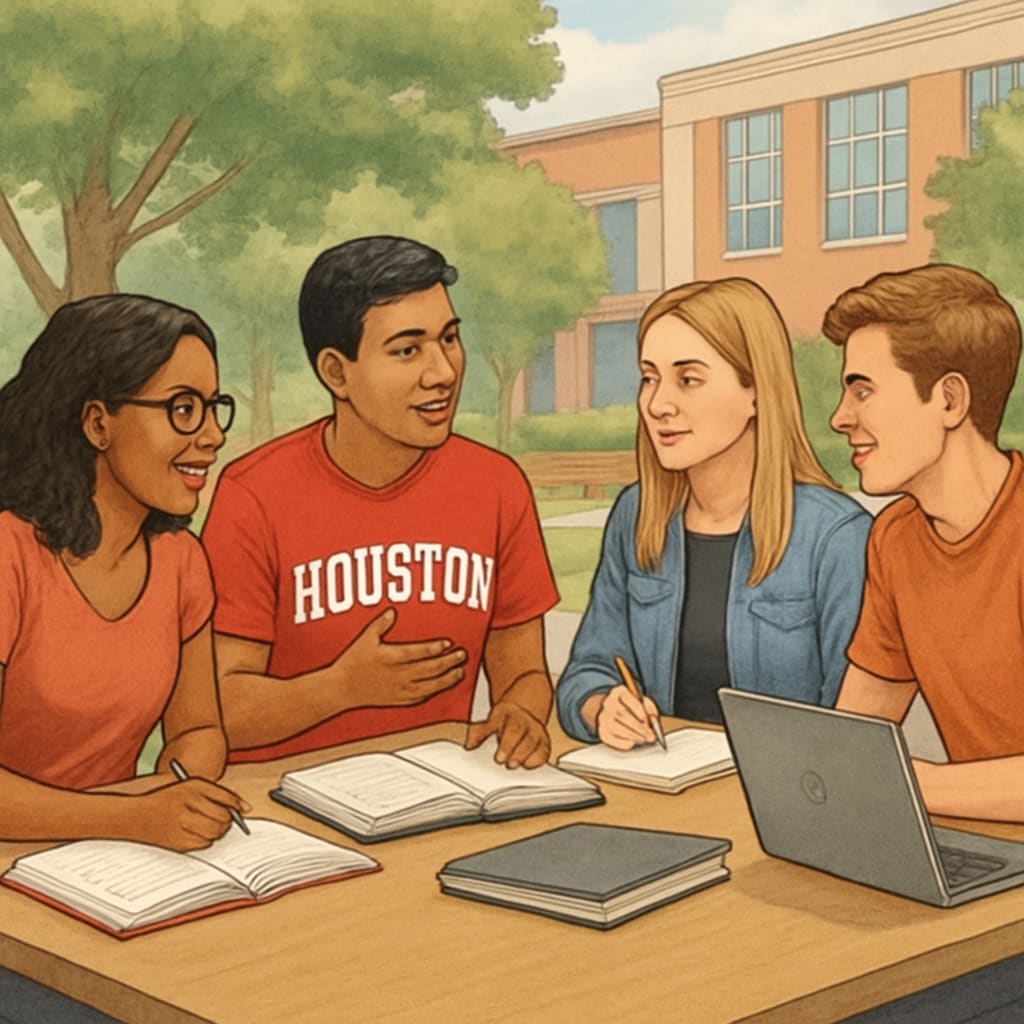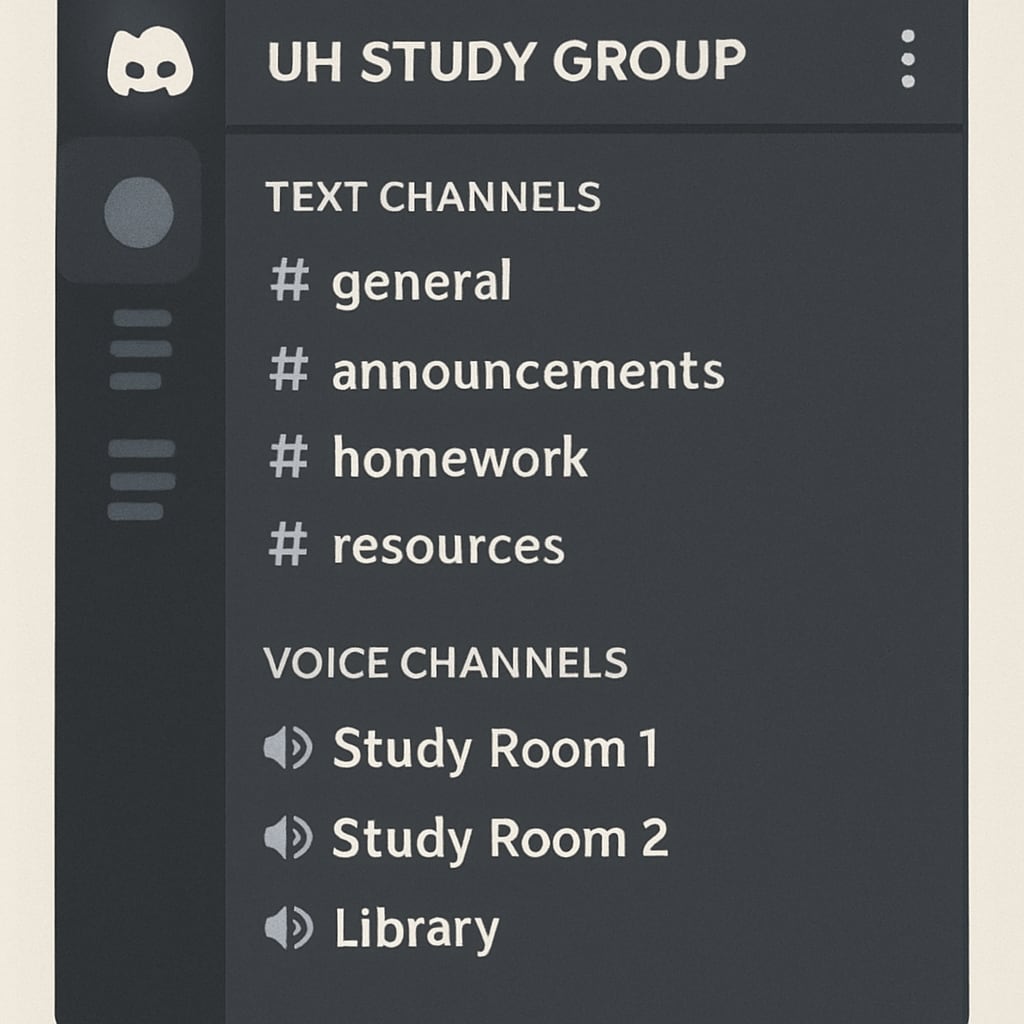The evolution of education emphasizes the power of connection, and “study groups, Discord, University of Houston” represent the modern triad for fostering collaborative learning. At the University of Houston (UH), students thrive in dynamic learning communities that leverage both traditional and digital platforms. For K12 educators, UH’s approach offers a roadmap for preparing students to adapt to collaborative academic environments.
The Role of Learning Communities in Academic Success
Learning communities are groups of individuals who come together to share knowledge, solve problems, and achieve academic goals. Research consistently highlights their value in improving comprehension, retention, and engagement. For example, study groups provide a space where students can complement each other’s strengths, clarify misconceptions, and develop deeper problem-solving skills. As a result, these communities foster not only academic growth but also interpersonal skills critical for success in university and beyond.
At the University of Houston, the emphasis on learning communities is evident in its wide array of programs, such as peer tutoring centers, academic clubs, and specialized study groups. These programs are tailored to encourage collaboration and ensure students remain connected to their peers and academic resources. For K12 educators, introducing learning groups as early as possible can help students build the skills needed to thrive in such environments.

Digital Platforms: Where Collaboration Meets Technology
In the era of digital transformation, tools like Discord have revolutionized the way students collaborate. Originally designed as a communication platform for gamers, Discord has evolved into a versatile tool for managing learning communities. Its features—such as text channels, voice chats, and file sharing—make it ideal for virtual study groups.
The University of Houston has embraced platforms like Discord to complement on-campus learning. For instance, students in STEM fields often create Discord servers to share resources, conduct virtual study sessions, and even form project teams. This digital collaboration mirrors the professional environments students will encounter in their careers, where remote collaboration is increasingly the norm.
K12 educators can implement similar strategies, introducing platforms like Discord to high school students in controlled, educational settings. By doing so, students gain familiarity with collaborative tools, ensuring a smoother transition to university life.

Lessons for K12 Educators: Preparing Students for Collaborative Learning
To prepare students for university-level collaboration, K12 educators can adopt several strategies:
- Introduce Study Groups Early: Encourage students to form small study groups for projects and test preparation. This helps them develop teamwork and communication skills.
- Leverage Technology: Familiarize students with platforms like Discord, Google Drive, and Zoom as tools for collaborative learning.
- Promote Peer Mentorship: Pair younger students with older peers to foster a culture of mutual support and knowledge sharing.
- Encourage Reflection: Teach students to evaluate their group dynamics and identify areas for improvement.
By integrating these practices, educators can help students build a strong foundation for the collaborative academic environments they will encounter at institutions like the University of Houston.
The University of Houston: A Model for Learning Communities
The University of Houston stands out as a leader in fostering collaborative learning. Its programs, which blend traditional study groups with innovative digital platforms, offer a blueprint for success. For example, the UH Writing Center hosts group workshops, while the STEM Zones initiative provides a collaborative space for science and engineering students. Additionally, the university’s embrace of tools like Discord ensures students can stay connected regardless of their physical location.
K12 educators can draw inspiration from UH’s model to design programs that prioritize collaboration, inclusivity, and technological adaptability. By doing so, they prepare students not only for academic success but also for a future defined by teamwork and innovation.
Conclusion: Building a Collaborative Future
The synergy between “study groups, Discord, University of Houston” highlights the transformative power of learning communities. From K12 classrooms to university campuses, fostering collaboration is key to academic and personal growth. By introducing students to the principles of group learning and the tools that enable it, educators can ensure that the next generation is equipped to thrive in an interconnected world.
As educators, students, and institutions continue to embrace collaborative learning, the lessons from the University of Houston offer a guiding light. By building strong learning communities, we create environments where knowledge is shared, connections are forged, and success is a collective achievement.
Readability guidance: Short paragraphs and lists summarize key points. The article uses a mix of examples, external links, and actionable insights to maintain engagement and clarity.


